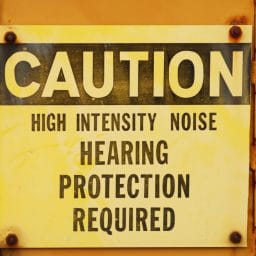How Your Diet Can Affect Acid Reflux Symptoms

Most of us have had the occasional bout of heartburn, known also as acid reflux. However, if you notice that you’re frequently experiencing symptoms after you eat, it may wise to change your diet to help improve your acid reflux symptoms. Common Symptoms of Acid Reflux Heartburn is the most common symptom, and typically feels…
Managing Stress-Induced Tinnitus During the Busy Fall Season

Fall brings with it a host of seasonal events, including holidays and school events. As enjoyable as these can be, the hectic schedule can also raise stress levels, which may intensify tinnitus symptoms for many. Tinnitus, often described as a ringing or buzzing in the ears without an external source, affects approximately 10% of the…
Why You Shouldn’t Ignore Your Allergies

Allergies are a common ailment in the U.S., with more than 100 million people experiencing them each year. They’re sometimes viewed as a mere inconvenience rather than a serious health concern. However, ignoring your allergies can lead to health issues and impact your quality of life. Understanding why it’s essential to address allergies can motivate…
What Does Fluttering In The Ear Mean?

If you’ve ever experienced fluttering in the ear, it may have felt and sounded like a butterfly flapping its wings in your ear. The sensation has a few primary causes, most of which aren’t serious. However, fluttering in the ear can impact your hearing and overall quality of life. Common Causes Fluttering in the ear…
Smokers Have a Greater Risk of Hearing Loss

You’ve probably heard some of the myriads of conditions linked to smoking cigarettes, including cancer, heart disease, stroke, lung disease, diabetes and chronic obstructive pulmonary disease (COPD). But did you know that smoking can also lead to hearing loss? A study published in The American Journal of Medicine sought to uncover just how strong this…
What Is Auditory Deprivation?

Hearing loss is a progressive condition, meaning it develops slowly over time. Because of this, many people don’t even realize they have hearing loss until it’s advanced to a stage that cannot be easily treated. This can have devastating impacts, including social withdrawal, feelings of loneliness, anxiety, depression and even cognitive decline. There’s another effect…
How to Virtually Celebrate the Holidays with Hearing Loss

It is notoriously difficult for people with hearing loss to communicate in large groups and when background noise is present. And while many are opting to have smaller, more intimate gatherings this holiday season, video calls will now be the preferred method to keep in touch with far-away relatives. This presents a whole new set…
What’s the Difference Between Being Deaf and Hard of Hearing?

You’ve likely heard the terms “hard of hearing” and “deaf” used to describe hearing loss, but they’re not interchangeable. In order to understand the distinction, we first need to review the different levels of hearing loss. What Are the Levels of Hearing Loss? There are four general levels, also called “degrees,” of hearing loss: Mild…
Meet the MDs Who Treat Hearing Loss

You visit an audiologist for a hearing test, but who do you visit to be treated for other medical conditions that affect the ears? Chances are you’ll be referred to an otolaryngologist or neurotologist if your initial assessment reveals an underlying condition is causing your symptoms. What Is an Otolaryngologist? Otolaryngologists are physicians that treat…
How Does Loud Noise Cause Ear Damage?

Many of us know the experience of being in a loud environment – whether it’s a concert venue, crowded bar or a construction site – and leaving with our ears ringing and hearing muffled. While this feeling is usually temporary, over time, repeated exposure can cause irreversible damage to our ears. How Sound Travels Through…